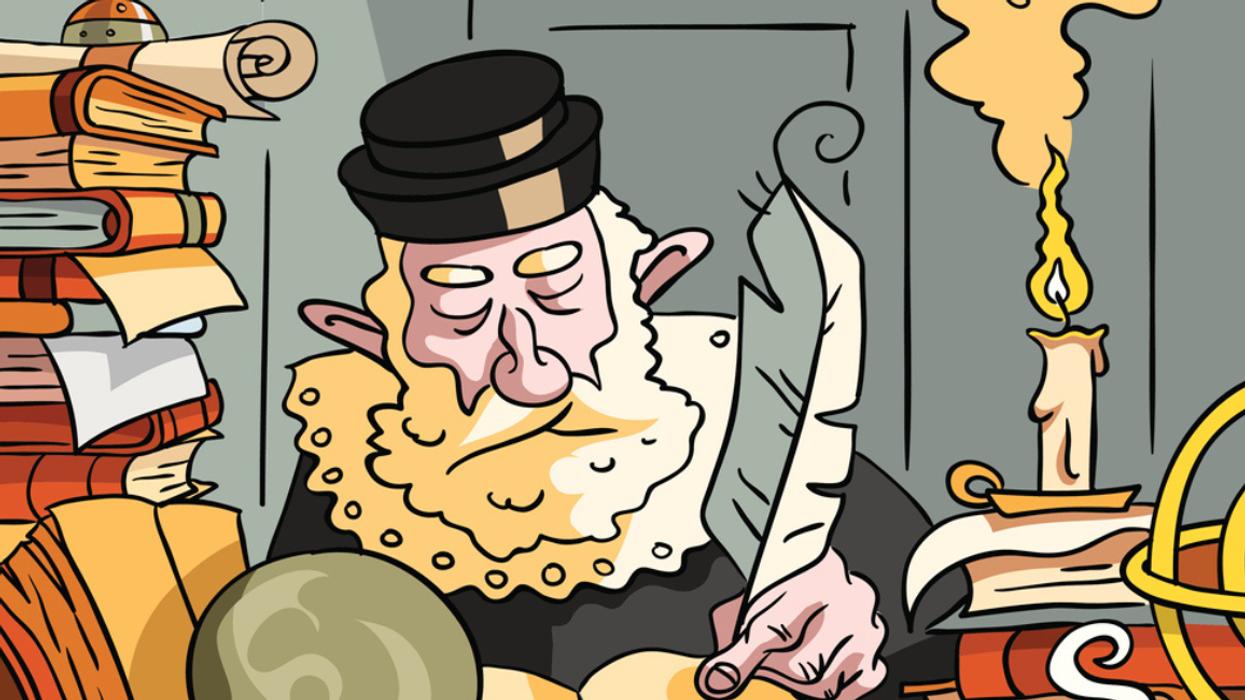A sense of expectation, hope, and occasionally anxiety accompany the start of a new year. Some people have professed to be able to predict the future throughout history; Nostradamus is one well-known example. Their predictions have generated conversations and arguments as 2024 approaches, particularly in relation to world events like wars, natural disasters, and political upheavals.
Nostradamus' Predictions for 2024
Nostradamus, the French physician and astrologer of the 16th century, left behind a series of mysterious quatrains known as the "Centuries." Certain individuals believe that there are predictions in these sacred writings connected with 2024. Prominently, Nostradamus predicts a naval battle that might include China, inferring overall international worries. He additionally talks about natural catastrophes and how to prepare for the worst.
Due to their infamous criticism and equivocalness, it is challenging to authoritatively connect Nostradamus' compositions to a specific occasion. Although certain individuals have declared that they might draw connections between Nostradamus' quatrains and other historical events, these translations are oftentimes theoretical and unsupported by real facts.
It's urgent to look at Nostradamus' predictions fundamentally and consider the conditions of his time. He was an individual living in a turbulent period of social, political, and strict unrest. It's conceivable that instead of offering exact forecasts of distant future occasions, his quatrains caught the apprehensions and vulnerabilities of his time.
As per our understanding, these are a couple of Nostradamus' predictions for the year 2024:
Naval War
Nostradamus predicts a naval war, represented by the "burnt ship." This clearly implies a battle at sea. The prophecy predicts major naval engagements and tensions because of pressures between countries, possibly including China.
China is right now rising quicker than even the US, representing a cutthroat danger. There are concerns that the competition between China and the US could ultimately transform into a conflict.
The prophecy of Nostradamus for 2024 goes like this: 'The burnt enemy will become yellow due to fear, and there will be fear in the great ocean.'
Those who believe in Nostradamus's prophecies think that China is the "burnt enemy."
Whatever it is, we could surely expect a naval war this year. That's what his prediction says.
Natural Disasters
Nostradamus predicts the emergence of natural calamities in 2024, with a specific emphasis on calamities connected to environmental change.
He says, "The rise in temperature will increase, and there will be a huge expansion in enormous-scale flooding."
Notably, he specifies the issue of a worldwide temperature alteration and recommends that Earth face more ecological difficulties, like an outrageous climate and the chance of increased volcanic action.
New Pope
The role of the Pope is the most significant in Christianity. Pope Francis, who is 86 years old, is in this role at the moment.
His health has been problematic in recent months, and there are worries about his mental state. Nostradamus's prophecies indicate that a new Pope will be appointed this year. According to him, the new Pope will encounter difficult situations. The prophecy suggests that there may be strife inside the Catholic Church, and the selection of the next pope will be a difficult process.
The truth of these forecasts will become clear in due course.
Prophetic Rulers
In Nostradamus's book, the use of force to drive the king is mentioned. It's unclear exactly who he is referring to. A calculation, however, indicates that the UK is an island. The major focus is on Charles, who took over the crown last year.
Nostradamus foretells the advent of a new monarch known as the "King of Terror" or the "Third Antichrist." It is believed that this leader will instigate dramatic shifts and disruptions. It is possible through armed conflict and political unrest.
The British author Mario Reading states in his book "Nostradamus: The Complete Profits for the Future" that he believes Charles III, the third heir apparent, may not make it to the throne. His reading has potential outcomes as well. According to him, Prince Harry might succeed Charles.
Economic Crisis
What's more, the predictions demonstrate that a worldwide emergency affecting various countries is to come in 2024. Nostradamus predicts an extraordinary change in the environment by 2024. Cybercrimes and cyberattacks are on the rise, representing a danger to public safety.
It's critical to inspect Nostradamus' predictions for 2024 from a fair perspective as we dive further into them. Certain individuals find such forecasts intriguing and interesting, while others might dismiss them as mere speculations. Whether one agrees with these spiritualists' expectations, they keep on captivating the attention of the world. Their prediction gives us a lens through which we are able to view the coming opportunities and uncertainties.









